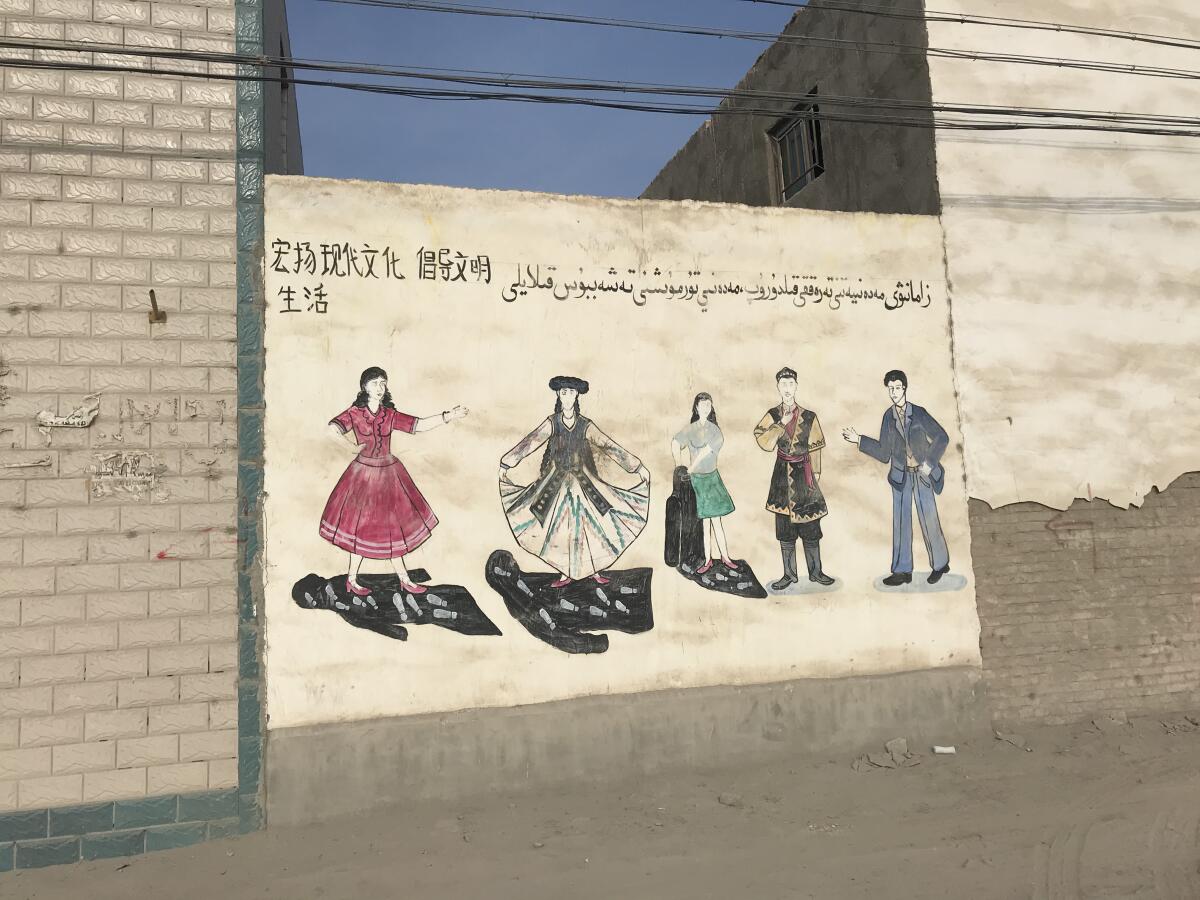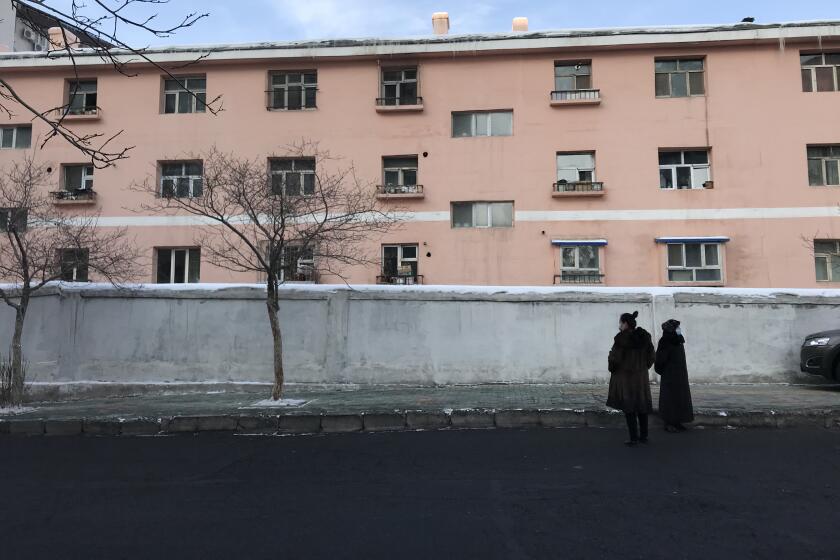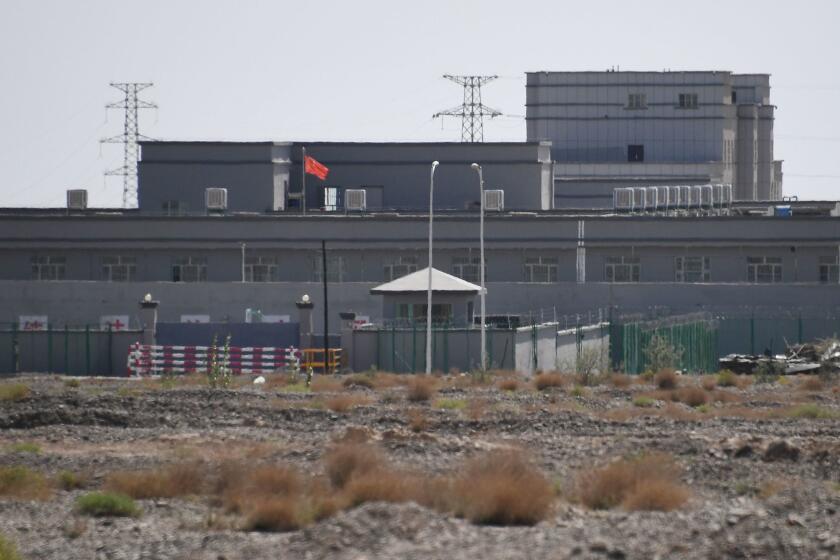Tensions with China rise over new U.S. ban on cotton from Xinjiang

- Share via
BEIJING — China on Thursday demanded that Washington drop a ban on cotton and tomato imports from its northwest province of Xinjiang over complaints they are produced using forced labor by the local Muslim population, an allegation dismissed by a government spokesman as the “lie of the century.”
The ban, which was announced Wednesday, adds to a flurry of sanctions imposed by the outgoing Trump administration against Chinese officials, companies and goods over human rights, security and other complaints.
The ban’s commercial impact is unclear, but Beijing is sensitive to criticism about the Xinjiang region, where more than 1 million Uighurs and other Muslim minorities have been confined in detention camps. Beijing denies mistreating them and insists that it is trying to promote economic development and stamp out radicalism.
“The so-called forced labor issue is a ‘lie of the century’ fabricated out of thin air,” said Zhao Lijian, a spokesman for China’s Ministry of Foreign Affairs. He accused the U.S. of wanting to hurt Chinese companies and the country’s development.
“We urge the U.S. side to respect facts, immediately withdraw its wrong decision and stop interfering in China’s internal affairs under the pretext of Xinjiang-related issues,” Zhao said.
Zhao said Beijing would “safeguard its interests and dignity” but gave no indication of possible retaliation. The government has made similar statements following earlier U.S. sanctions but took no action.
A vast system of Chinese surveillance, detention, cultural erasure and forced labor has devastated the Uighur people in Xinjiang, their homeland.
Xinjiang is a major cotton supplier to clothing producers in China as well as Bangladesh, Vietnam and other countries. That makes the U.S. ban a potential challenge for retailers or clothing brands that will be required to ensure that their products are free of Xinjiang cotton.
Zhao warned that the ban would disrupt global supply chains.
“It is detrimental to the interests of enterprises and consumers of all countries, including the United States itself,” he said.
Xinjiang also is a major supplier of tomato paste to foreign food brands, but its main markets for that are Europe and the Middle East.
A new report says Chinese authorities have been sending Muslim-minority Uighurs from concentration camps to factories where they are forced into labor.
The United States imported about $9 billion worth of cotton goods directly from China last year, according to the U.S. government.
Earlier, Washington imposed a ban in December on imports from a company that controls about one-third of Xinjiang cotton production. The U.S. government said it has stopped shipments worth about $2 million. Canada and Britain also have announced plans to block imports of goods produced by forced labor.
The Trump administration has blocked imports from individual companies linked to forced labor in Xinjiang. It has imposed travel bans and other sanctions on Communist Party officials with prominent roles in the campaign.
More to Read
Sign up for Essential California
The most important California stories and recommendations in your inbox every morning.
You may occasionally receive promotional content from the Los Angeles Times.












